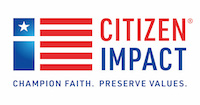Arizona scholarship program faces lawsuit
Funds allow tailored options for disabled kids
by Hayley Ringle – Oct. 2, 2011
The Arizona Republic
A lawsuit filed last week is challenging the nation’s first publicly funded education savings-account program, and families who use the scholarship are concerned their children will have to find new schools.
The new program, called the Arizona Empowerment Scholarship Accounts, was enacted during the last legislative session and started this school year.
About 75 families with children with disabilities were accepted and receive $3,000 to $25,000 a year to buy a mix of educational options that best suits their child.
The money can be spent to attend a private school, receive extra tutoring or therapies, or buy a curriculum if the child is homeschooled. The parent agrees not to enroll their child in a public school or charter school. If money is left over after the child graduates from high school, the money can be used for college tuition.
The amount of money a family receives depends on the nature of the disability, and the family receives 90 percent of the base amount of funding a public or charter school would receive for that child, said Tim Keller, executive director of the Institute for Justice Arizona Chapter, which is intervening in the lawsuit on the behalf of parents and children who qualify for the program.
“The idea is to ensure that parents get their kids the best available education,” Keller said. “There are no one-size-fits-all to education. Quite frankly, some needs just aren’t met in public schools. This program gives them the alternatives.”
The Arizona School Boards Association, the Arizona Education Association and the Arizona Association of School Business Officials, which filed the lawsuit, claim the new program is unconstitutional.
“It’s a voucher program that results in government money being used potentially for an unconstitutional program,” said Chris Thomas, the Arizona School Boards Association’s general counsel. “Under our state Constitution, it’s a pretty clear directive that no public money can go to religious instruction.”
Tonya Reiner’s two sons attend private schools in Prescott through the program. Both have autism, and Reiner said their needs were not being met in the local public-school district. Now, her 8- and 9-year-olds are thriving, and Reiner is worried she won’t be able to continue sending her sons to the schools if the program is struck down.
“They’re now in a placement that meets their needs and has a trained staff to meet their needs,” said Reiner, who receives $20,000 for each child through the program. “This provides parents the opportunities to make the choice that will be beneficial to their child and their child’s needs.”
The Empowerment Scholarship was created after another voucher program was struck down by the Arizona Supreme Court in 2009. The court stressed that the Arizona Scholarships for Pupils with Disabilities Program could not continue because it only allowed families to send their children to private schools.
The Institute for Justice wanted to design a new program to help the families, and after reading the court’s decision and listening to oral arguments, the group worked with a team to create the Empowerment Scholarships.
Keller said the idea came from the judge and attorney in the previous case who said the money could be offered to let families do whatever they wanted for their child’s education.
However, Thomas said although this new program attempts to do things in a “slightly different way, it’s still government money going for an illegal purpose.”
“I do have sympathy for the families, but there is a mechanism for them,” said Thomas, adding that families in public schools can go through the Individualized Education Program and have their child placed in a private school if the public school agrees they can’t meet the child’s needs. The public school then pays for the child to attend a private school.
Another program, Lexie’s Law, allows corporations and insurance companies to donate to a scholarship program to allow families to send their children with special needs to the schools of their choice. Less than $1 million was raised last year for the program, Keller said.
Andrea Weck-Robertson, whose daughter, Lexie Weck, inspired Lexie’s Law, said she would have applied for the Empowerment Scholarship if her daughter weren’t already being helped by Lexie’s Law. Lexie is now 10 and attending St. Dominic Savio Academy in Tempe. Lexie has autism, cerebral palsy and mild mental retardation and is a completely different child than she was when she was in public schools, her mom said.
“The private school has changed her life 110 percent,” Weck-Robertson said.
Weck-Robertson used the previous school-voucher program for two years before it was struck down.
“It was a very scary, awful feeling when they abolished the voucher program,” said Weck-Robertson, a Scottsdale mom who has two other daughters. “I just had to believe that the right thing would happen.”
The Institute for Justice developed Lexie’s Law to help families like Weck-Robertson’s.
“Her being in private school is more important than anything,” Weck-Robertson said. “They finally write something that makes sense by letting families take the money and do something good for them, and now some feel it’s not constitutional.”
Copyright © 2011 azcentral.com. All rights reserved.
